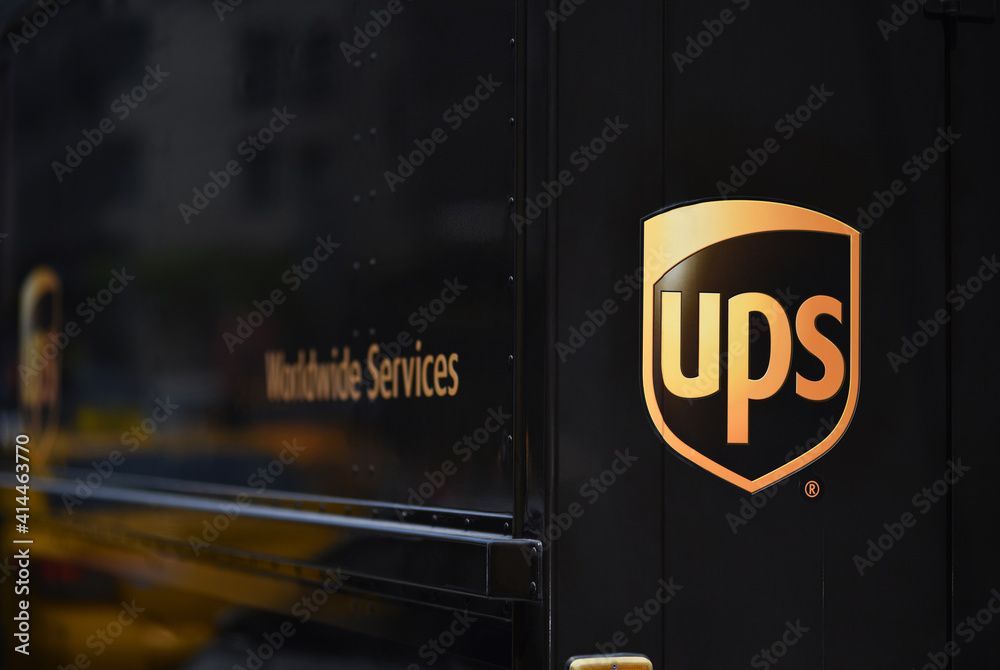Parcel Spend Management
The industry’s best shippers treat parcel spend management as a constant priority. They use data to plan, measure, optimize and monitor.
A central repository of standardized data allows for powerful insights into your shipping network. This allows for cost-saving measures like contract negotiation, invoice auditing and more. This also enables intelligent scenario planning for maximum savings potential.
What is Parcel Spend Management?
As e-commerce continues to surge, the landscape of parcel shipping is undergoing remarkable transformations. The rise of innovative logistics solutions has given birth to a sea of new parcel carriers and competitive pricing. Effective parcel spend management is now critical to ensuring both profitability and customer service in this crowded marketplace.
It involves negotiating carrier contracts, auditing shipping invoices, and streamlining operational logistics to reduce overall costs without sacrificing service quality. And it’s important for all shippers to focus on these issues. The smallest oversight can cost your business thousands of dollars.
Fortunately, you can get back those hidden savings by adopting an intelligent parcel shipping system. It will help you reclaim lost refund credits, identify lowest-cost shipping options, audit billing discrepancies, and more.
In addition, a good parcel audit software will also help you eliminate the operational blind spots that can lead to unnecessary spending and missed opportunities for improvement. For example, a Zero Down client stumbled upon an 18% savings opportunity when they analyzed their data with an audit tool. They had overlooked the impact of changing volume tiers on service level optimization.
You can’t manage your shipping network effectively if you don’t have complete, accurate data. A robust transportation audit solution, provides a central repository of standardized data that you can use to make more informed decisions about your shipping network. This approach is called active shipping management and it helps you align your shipping strategies with your financial plans on a continual basis, rather than reacting to problems as they arise. This data-driven decision-making will ensure your company is maximizing efficiency and cost reduction across your entire shipping network.
1. Identify the Most Cost Effective and Time Effective Carrier
Effective parcel spend management requires a multifaceted approach, including negotiating carrier contracts, auditing shipping invoices, and streamlining operational logistics. Using technology to identify and eliminate cost inefficiencies is an important step, but identifying the most cost effective and time efficient carrier also requires insight into your business and shipping processes.
Having access to detailed and accurate data allows for proactive cost-cutting strategies. Whether it is correcting address corrections that are billed weekly or opting for ground instead of air to meet service level goals, the best shippers take advantage of all cost-saving opportunities. These fixes and efficiencies add up quickly, and the visibility into these issues provides a powerful ROI on your parcel spending management solution.
Additionally, a strong parcel spend management strategy includes comparing your rates and services against industry benchmarks and competitors. This ensures you aren’t overpaying, and that you’re competitive in the marketplace.
Managing parcel expenses is an ongoing effort, and sudden industry disruptions like rate hikes or carrier bankruptcy can increase your costs. An effective strategy enables you to act fast without disrupting your network or customer delivery experiences.
A good third-party logistics provider has a deep understanding of the shipping industry and can help you negotiate better rates with carriers, consolidate shipments, and manage your shipping policies. Having this insight into your shipping operations can reduce costly inefficiencies and save you valuable time and money.
Parcel spend management is an essential part of any business, and the ROI can be significant if done well. Using advanced software solutions, powerful data analytics, and expert guidance from experienced shipping auditors is an effective way to reclaim lost savings and optimize your shipping costs.
2. Provides Data to Negotiate Better Rates
There are many ways for brands to improve their shipping costs, such as negotiating better carrier contracts, regularly auditing invoices, and more. However, the key to unlocking these opportunities is having access to a powerful data analytics platform. This makes it easy to proactively align your parcel shipping strategies and financial plans, something that can save significant money and help you achieve long-term supply chain success.
It is important to have the ability to drill down into the details of your network, as well as view it in a big picture. This is possible only with a solution that provides specialized, user-friendly, and highly customizable dashboards that make it easy for teams to understand the data and identify opportunities for improvement. It is also helpful to have a tool that can provide standardized cost structure and delivery schedules, as well as the ability to compare the various types of services offered by each carrier.
In addition to these tools, having the right network optimization strategy allows you to take advantage of the best deals available. By identifying the lowest-cost options, you can negotiate rates and avoid paying unnecessary surcharges and fees. It’s also a good idea to monitor market trends, as it equips you with the insights you need to negotiate advantageous carrier contracts and ensure your terms align with real-time industry conditions.
In a time when customers are increasingly shifting their loyalty to products and prices rather than brand names, it is critical for companies to have control over their supply chains. Taking back financial control requires a comprehensive parcel management system that combines intelligent lane and carrier selection, cost allocation, activity-based surcharges, and invoice auditing to minimize unexpected surcharges, optimize parcel carrier choice, and capture savings from carrier billing discrepancies.
3. Provides Data to Create More Effective Shipping Flows
During the peak shipping season, companies face increased volumes and costly operational logistics that require attention to avoid unnecessary expenses and delivery challenges. This is where effective parcel spend management can help.
Parcel spend management strategies can range from negotiating carrier contracts to auditing invoices and streamlining operations. A thorough approach is necessary for success, and leveraging advanced data analytics and rapid software solutions proves invaluable. These strategic measures can yield substantial cost savings and supply chain efficiencies, especially during peak shipping seasons.
For example, one of the most common cost-saving opportunities is ensuring that negotiated surcharge discounts don’t expire before their contracted term. By implementing a regular audit schedule with an experienced third-party company that specializes in invoice auditing, like P3, businesses can uncover these savings and maximize their rebates and refunds.
Another key aspect of parcel spend management is optimizing the use of a company’s shipping network. This can be achieved through intelligent scenario planning and carrier mix optimization. By analyzing service selection, pricing, delivery times, and capacity, an effective parcel management solution can uncover hidden cost savings by identifying carrier options that provide a balanced cost-to-delivery ratio and the highest level of customer satisfaction.
Managing a high volume of parcel shipping activity can be complex, and many costs and inefficiencies may be overlooked or slip through the cracks. With the right parcel spend management strategy, businesses can save significant money and maintain optimal shipping processes and compliance. To learn more about how to optimize your shipping process, contact a specialized third-party logistics provider with deep expertise in the industry. They can help you negotiate better rates, consolidate shipments, and streamline shipping policies to ensure that your company is maximizing its shipping potential.
4. Better Supply Chain Visibility
In order to effectively manage parcel costs, it’s essential to have full visibility into your network. That includes every aspect of your shipping operations, from negotiating accessorial fees and activity-based surcharges to analyzing and monitoring carrier performance. This information is crucial for making the right decisions about how to optimize your shipping network.
However, this type of comprehensive information can be hard to come by. Carrier portals provide a limited view into the data and are often difficult to navigate. This can make it time consuming to find the information you need, which ultimately slows down your decision-making process. It also makes it difficult to accurately track cost allocations and spot inefficient or costly processes.
The best shippers are constantly analyzing and optimizing their shipping processes to minimize costs and improve delivery times. This is no different during the holidays when the market experiences a surge in online shopping, driving higher than normal parcel volume. Without proper management, these spikes can cause serious supply chain disruptions and increase shipping costs.
Effective parcel spend management involves strategic carrier negotiations, invoice auditing, and streamlining operational logistics. These strategies can uncover hidden costs savings opportunities, allowing businesses to save money and maximize their shipping capabilities. Moreover, by using advanced data analytics and rapid software solutions, shippers can get a full picture of their shipping network. This helps them determine the optimal carriers for each lane and service level, as well as the best discounts to apply for their specific volume. This is important for maximizing discounts and minimizing the impact of sudden industry disruptions like rate increases. By understanding their shipping networks, businesses can be prepared to quickly react to changes without sacrificing quality of service or incurring unnecessary costs.
Would you like to learn more?
Contact Us Here
Ready to work with Mindful Logtistics?
Let's connect! We’re here to help.
Send us a message and we’ll be in touch.
Or give us a call today at (919) 368-6169
Agency Contact Form
More Info on Shipping and Saving




